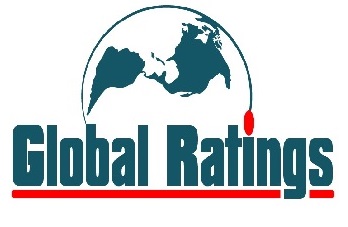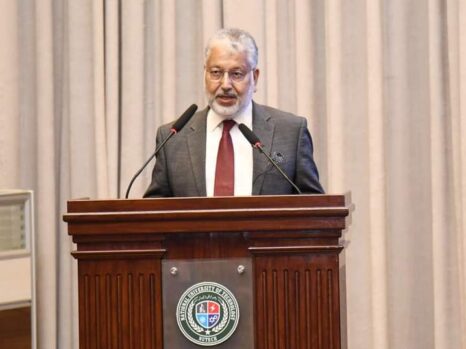By : Zulfiqar Ali
Muzaffarabad: The denial of the right to information by the AJK (Pakistan administered Kashmir) governments represents a grave violation of fundamental human rights and international norms established by various conventions and treaties. The systematic obstruction of access to information undermines transparency, accountability, and democratic principles within the region.
In light of the Universal Declaration of Human Rights and the International Covenant on Civil and Political Rights, which emphasize the right to seek, receive, and impart information, the AJK (Pakistan administered Kashmir) governments’ refusal to provide access to public information contradicts fundamental human rights principles. These documents affirm the inherent right of individuals to access information held by public authorities, without discrimination or undue obstacles.
Moreover, the UN Convention against Corruption underscores the importance of transparency and accountability in public administration. By denying citizens the right to information, the AJK (Pakistan administered Kashmir) governments obstruct efforts to combat corruption and promote good governance.
The situation is further exacerbated by the absence of comprehensive legislation guaranteeing the right to information within the AJK (Pakistan administered Kashmir) region. While many countries have enacted laws to ensure transparency and facilitate access to public information, the lack of similar legislation in AJK (Pakistan administered Kashmir) leaves its citizens vulnerable to arbitrary restrictions and opacity in government affairs.
Given these challenges, conditioning financial assistance from Pakistan, UN agencies, and international organizations on the enactment and enforcement of a robust right to information law in AJK (Pakistan administered Kashmir) could serve as a strategic mechanism to promote transparency and accountability within the region.
Here’s how conventions and treaties support this approach:
- Universal Declaration of Human Rights (UDHR):
• Adopted by the United Nations General Assembly in 1948, the UDHR recognizes the right to freedom of opinion and expression in Article 19, including the freedom to seek, receive, and impart information and ideas through any media and regardless of frontiers.
- International Covenant on Civil and Political Rights (ICCPR):
• The ICCPR, adopted by the UN General Assembly in 1966, further elaborates on the right to freedom of expression and information in Article 19. It emphasizes the importance of protecting the right to seek, receive, and impart information and ideas of all kinds, regardless of frontiers, through any media.
- UN Convention against Corruption (UNCAC):
• The UNCAC, adopted by the UN General Assembly in 2003, recognizes the importance of access to information in preventing and combating corruption. It calls upon states parties to promote transparency and accountability in public administration and to ensure access to information concerning the allocation of public resources.
- African Charter on Human and Peoples’ Rights:
• The African Charter, adopted by the Organization of African Unity (now African Union) in 1981, recognizes the right to receive information and the right to access public documents as fundamental human rights. It underscores the importance of transparency and accountability in governance.
- Inter-American Convention on Access to Information:
• This convention, adopted by the Organization of American States in 2011, emphasizes the right of access to information held by public authorities and promotes transparency, accountability, and citizen participation in the Americas.
The right to information is a cornerstone of democratic governance and human rights. It empowers individuals to access information held by public authorities, promotes transparency in government actions, and facilitates active participation in decision-making processes.
- Transparency and Accountability: The right to information ensures that government activities, decisions, and policies are transparent and accountable to the public. When citizens have access to information about how their government operates and how decisions are made, they can hold public officials accountable for their actions and ensure that resources are used effectively and ethically.
- Democratic Participation: Informed citizens are essential for the functioning of a democratic society. The right to information enables individuals to participate meaningfully in public discourse, debates, and decision-making processes. By accessing diverse sources of information, citizens can form opinions, engage in discussions, and advocate for their interests and concerns.
- Promotion of Human Rights: Access to information is closely linked to other fundamental human rights, such as the right to freedom of expression, the right to education, and the right to participate in public affairs. By guaranteeing the right to seek, receive, and impart information, societies can foster an environment conducive to the enjoyment of these rights.
- Accountability and Anti-corruption Efforts: Transparency and access to information are essential tools in combating corruption and promoting good governance. When government actions and decisions are open to public scrutiny, it becomes more difficult for corrupt practices to thrive. Citizens can uncover instances of wrongdoing, report abuses of power, and demand accountability from public officials.
- Development and Empowerment: Access to information is crucial for individual and societal development. It enables citizens to make informed choices about their lives, health, education, and livelihoods. Moreover, access to government data and information can empower marginalized groups, promote social justice, and reduce inequalities.
Internationally, the United Nations and other intergovernmental organizations recognize the importance of the right to information as a fundamental human right. Various treaties, conventions, and declarations uphold this right and call upon member states to enact legislation and establish mechanisms to ensure its realization.
The right to information is not only a legal entitlement but also a key enabler of democratic governance, human rights, transparency, and accountability in societies around the world.
Acknowledging potential challenges and considerations is crucial:
- Political Resistance: The governments of Azad Kashmir (Pakistan administered Kashmir) have shown reluctance to enact right-to-information laws due to apprehensions regarding accountability and transparency. There is a prevailing fear that exposing decades of corruption and misuse of authority could pose challenges for politicians and bureaucrats. Despite this resistance, many people are calling for a transformative shift in governance dynamics. They advocate for tying financial assistance to the establishment and enforcement of right-to-information laws. This demand reflects a collective aspiration for transparency, accountability, and enhanced governance. However, they stress the necessity of addressing political barriers, strengthening institutional capacities, and ensuring alignment with local contexts and priorities. Such efforts signify a growing momentum toward community empowerment and the promotion of democratic principles.













